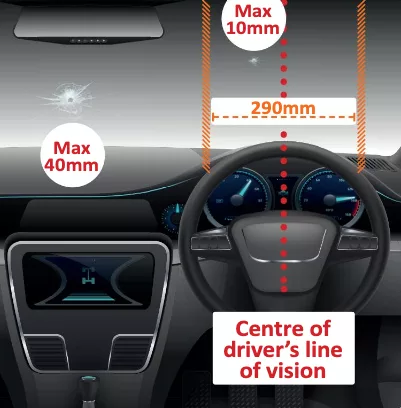First of all, please ensure that the vehicle is clean, this makes the inspection process much easier. If the vehicle is too dirty, it may prevent the inspection from being completed, as it can obscure our assessment. If this is the case, we will issue a vehicle cleaning fee (as detailed in our charges schedule), and complete the inspection when it is returned to our vehicle preparation centre.
All electronic safety features and driver assistance systems should be in working order, this includes: parking sensors, cruise controls, lane departure and collision warnings.
It might go without saying, but the car should be roadworthy, with no warning lights illuminated, so that we are able to collect the car as seamlessly as possible.



